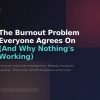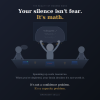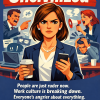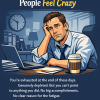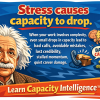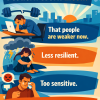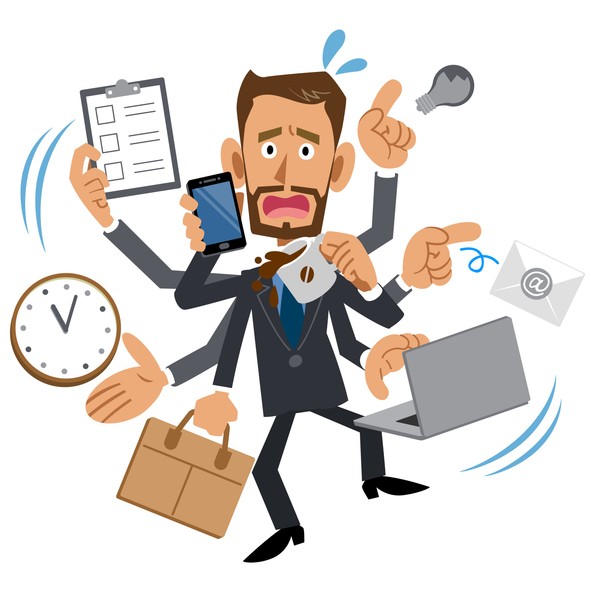
The ADHD Career Thing Nobody Talks About
(Or: Why I'm Writing This at 2 AM)
Look, I should be sleeping. But I finally figured out something about work and ADHD that's been gnawing at me for... honestly, years? And if I don't write it down now, it'll be gone by morning. You know how it is.
My cat just knocked over my water glass. Of course. Anyway.
The Problem Nobody Wants to Admit
Here's what nobody tells you about having ADHD in a professional setting: everyone's trying to fix you with neurotypical solutions. "Just use a planner!" Sure, Karen. The graveyard of abandoned planners in my desk drawer would like a word. Actually, wait, I think I threw most of them out last month in a rage-cleaning episode at 11 PM. "Be more consistent!" Cool, let me just rewire my entire nervous system real quick.
I've been messing around with this Emergent Skills framework thing for the past few months, and... okay, it's actually built for how our brains work. Not adapted. Not "inclusive." Actually built for the interest-based nervous system that makes us chase dopamine like it's the last cookie in the jar.
The Script Gets Flipped
The whole thing flips the script. Instead of discipline → action → maybe feeling better (which, lol, when has that ever worked), it goes regulation → activation → reflection. Calm your body first. Do one stupidly tiny thing. Then figure out what worked. Or didn't work. Actually mostly it doesn't work at first but that's kind of the point? I'll explain.
Yesterday my "focus work" was opening a Google Doc and typing "I hate this project" at the top. That was it. That counted. Because here's the thing they figured out – everything scales down to Can't-Even Mode. Full version, smaller version, tiny version, can't-even version. Your executive function is having a garage sale today? Cool, Can't-Even Mode still counts.
Wait, I should probably explain what this actually is before I just keep rambling about—
Whatever, The Money Thing
Companies apparently lose something like $500 billion annually on disengaged employees. Or was it $50 billion? No, definitely hundreds of billions, I read it somewhere – Gallup maybe? The point is it's huge and we're definitely part of it. Every Monday I zone out, every afternoon crash, every meeting where I forgot what we were talking about mid-sentence because I noticed the way the light was hitting the wall and started thinking about how shadows work...
But here's what I've noticed tracking this stuff: when I actually do the tiny regulation thing before meetings (literally just a 5-second exhale and dropping my shoulders), I can speak up without that weird panic-freeze thing.
Started tracking it. Went from speaking up maybe once a week to... well, still not every meeting, but more. Actually no, that's not true. Last week I didn't speak up at all. But the week before was better. I think. I should check my logs.
The framework has these ten pillars – Focus, Energy, Stress, Communication, and... I honestly can't remember all of them right now. I mostly just rotate between Focus (when I need to actually produce something) and Rest (when I'm about to hit the wall). Sometimes I do the confidence one but it feels weird. Oh, and there's something about decision-making? I don't use that one.
My Typical Day Now (When It Works)
Morning Routine
Two minutes of regulation. One breath that doesn't suck. Move something in my body (usually just putting my feet flat on the floor because that's all I got). Sometimes I stretch but usually I forget. Then I do the tiniest possible work thing. This morning it was... actually I didn't do it this morning. But yesterday it was sending one Slack message that just said "Following up on this." That's it. Logged it. Distress went from 7 to 5. Or maybe 6. I can't remember exactly but it went down.
The Tracking Hack
The tracking part is weirdly important. Not tracking consistency (ugh) or confidence (double ugh) but just: Did I attempt something? Did my distress drop even one point? That's it. My brain can handle those metrics. Mostly. Sometimes I forget to track for like three days and then make up numbers that seem about right.
When motivation is under 3 or distress is over 7 (which is... often. Like right now it's probably an 8 because I can hear my neighbor's TV through the wall and it's some reality show with people yelling), everything drops to Can't-Even Mode. One breath. One line of text. One log entry. Still counts. This is the hack that changed everything – you don't have to feel ready. You don't have to want to do it. You just have to do something so small it's almost insulting.
The Novelty Rotation Thing
The novelty rotation thing is clutch for dopamine. Instead of forcing myself through one horrible task for an hour, I rotate three micro-tasks every few minutes. Email, spreadsheet, documentation, email, spreadsheet, documentation. My brain stays interested because it's always switching. Actually, that's a lie, it's still boring but less boring than doing one thing forever.
Ugh, Okay, Product Mention Incoming Because Rent Exists
There's a 30-minute reset thing. Free. You can try it. It walks you through finding your tiny actions for whatever pillar-thing you're struggling with. After that there's a subscription which, yeah, I know, everything's a subscription now. Monthly exists if you're not sure (that's what I did for like four months because commitment is terrifying), but the annual is $299 which sounds like a lot until you realize it's basically two therapy sessions. Or one really bad impulse purchase on Amazon at 1 AM.
The AI coach part is actually useful because you can just dump your current disaster into it and it gives you one specific thing to try. No overwhelming lists. No "have you considered mindfulness?" Just: here's one tiny thing, try it, rate if it helped. Sometimes it suggests weird stuff though. Like last week it told me to try humming. I didn't.
What Actually Changed (After Three Months)
After about three months, something weird happened. I stopped having those massive evening crashes where I'd just stare at my phone for three hours, unable to move. Not completely – still happens sometimes. Monday was bad. Really bad actually. But it's less often. And recovery is like 10-20 minutes instead of the whole evening being shot. Although last night was definitely shot but that was because I started researching Byzantine history at 10 PM for no reason.
- Baseline confidence went from "everything is on fire" (maybe 2/10) to "some things are only smoldering" (4-5/10)
- The hypervigilance thing has backed off – you know that constant scanning for what's about to go wrong?
- Regulation before interactions actually works (who knew)
- Still check Slack compulsively to make sure nobody's mad at me, but like, slightly less compulsively
Doesn't sound like much but when you've been at 2 for years... Actually, you know what, some days it's still a 2. But more 4 days than before.
If You're Ready to Try This
If you have ADHD and you're trying to not suck at your job while also not destroying yourself, the main thing is: this system assumes your executive function is variable. Everything scales to almost nothing when you need it to. You track attempts and distress drops, not consistency. Tiny wins count. Starting when you're not ready counts.
I should probably link to something but I honestly don't know where I saved the links. There's a Focus pillar thing somewhere that ADHD folks usually start with. Or if you're more concerned about actually getting things done, check out the productivity approaches that work with procrastination instead of against it.
Or you could just... try one breath tomorrow morning before checking Slack. That's a start.
One Last Thing
Actually wait, I forgot to mention – the whole "reset → build → thrive" tagline they use is kind of cheesy but whatever. Marketing people gotta market I guess.
My cat is staring at me. Time for bed.
It's 2:31 AM now (how did that take 14 minutes?) and I need to attempt sleep. But yeah. This thing gets it. Finally something does.

